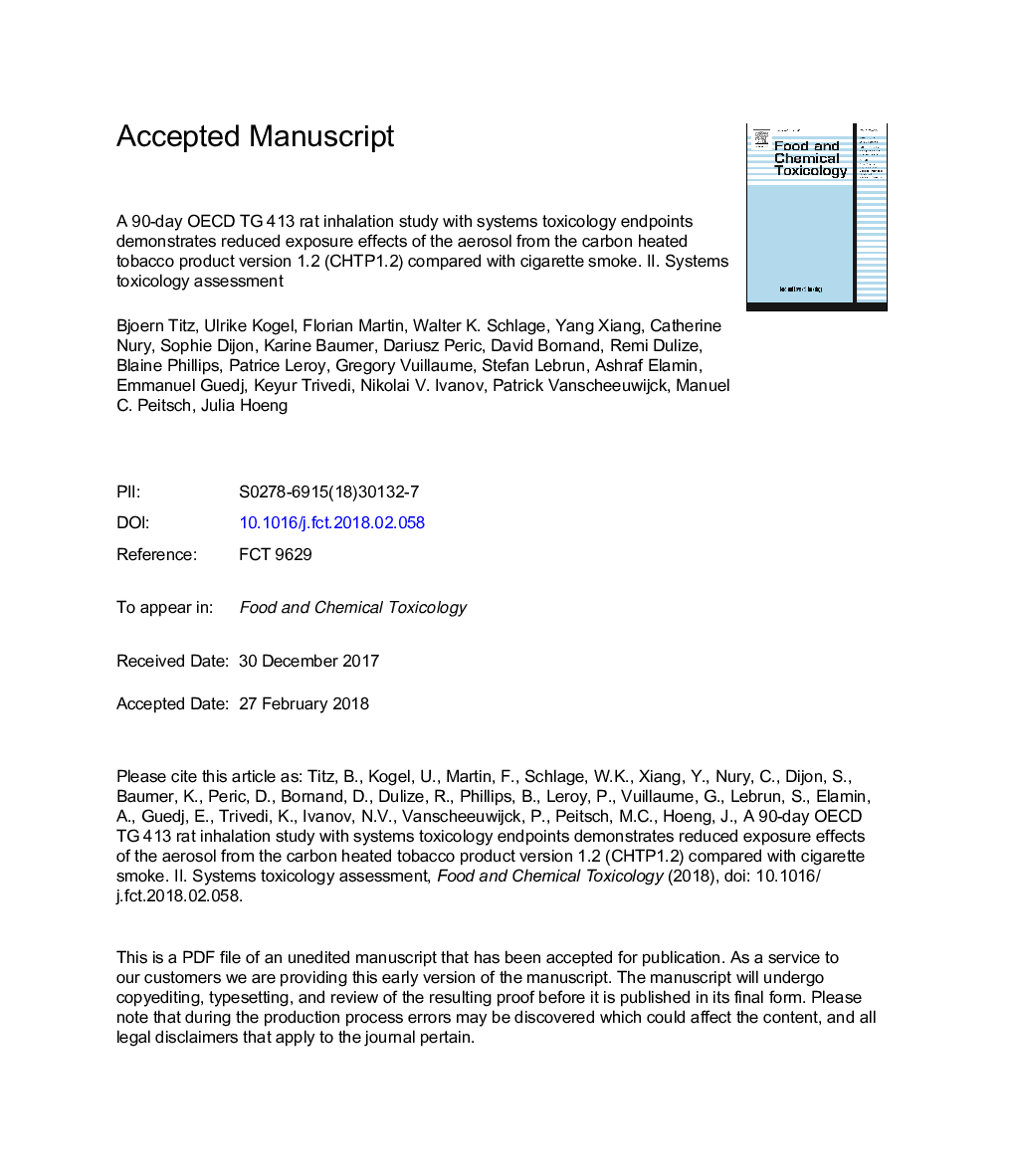| Article ID | Journal | Published Year | Pages | File Type |
|---|---|---|---|---|
| 8547581 | Food and Chemical Toxicology | 2018 | 73 Pages |
Abstract
Modified risk tobacco products (MRTPs) have the potential to reduce smoking-related health risks. The Carbon Heated Tobacco Product 1.2 (CHTP1.2) is a potential MRTP that uses a pressed carbon heat source to generate an aerosol by heating tobacco. Here, we report the results from the systems toxicology arm of a 90-day rat inhalation study (OECD test guideline 413) to assess the effects of CHTP1.2 aerosol compared with cigarette smoke (CS). Transcriptomics, proteomics, and lipidomics analyses complemented the standard endpoints. In the respiratory nasal epithelium, CS induced an adaptive tissue and inflammatory response, which was much weaker after CHTP1.2 aerosol exposure, mostly limited to the highest CHTP1.2 concentration (at twice the 3R4F CS concentration: 50 vs. 23â¯Î¼g nicotine/L), in female rats. In the lungs, the effects of CS exposure included inflammatory and cellular stress responses, which were absent or much lower after CHTP1.2 aerosol exposure. Outside of the respiratory tract, CS and CHTP1.2 aerosol induced effects that were previously associated with exposure to any nicotine-containing aerosol, e.g., lower lipid concentrations in serum. Overall, this systems toxicology analysis complements and confirms the results from classical toxicological endpoints and further suggests potentially reduced respiratory health risks of CHTP1.2.
Related Topics
Life Sciences
Agricultural and Biological Sciences
Food Science
Authors
Bjoern Titz, Ulrike Kogel, Florian Martin, Walter K. Schlage, Yang Xiang, Catherine Nury, Sophie Dijon, Karine Baumer, Dariusz Peric, David Bornand, Remi Dulize, Blaine Phillips, Patrice Leroy, Gregory Vuillaume, Stefan Lebrun, Ashraf Elamin,
